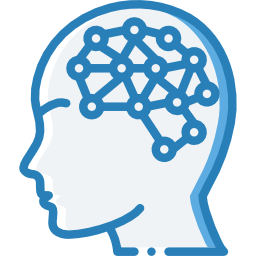Fundamentally, anything humans can do can be done by physical systems of some kind, (because humans are already such a system), so given enough time I’d bet that it would be eventually possible to make a machine do literally anything that can be done by a human. There might be some things that nobody ever does get an AI to replicate even if technically possible though, just because of not having a motivation to
The flavor of cinnamon toast crunch.
Was my exact thought. Lol
Since AI is trained by us, using the fruit of human labor as input, it’ll have to be something we can’t train it to do.
Something biological or instinctual… Like being in close proximity to an AI will never result in synchronized menstruation since an AI can’t and won’t ever menstruate.
So… That 👍
Synched Menstruation is supposed to be a myth now. I have experienced it many times, but I guess it’s mostly considered coincidence, which it could be, I’m not a mathematician.
What would you bet on AI not ever getting the ability to menstruate?
An exact 1:1 realtime copy of itself emulated within a simulated universe.
Pretty much everything else mentioned in this thread falls into the “never say never” category.
Also being able to analyze any program and guarantee it will stop
Probably still a never say never problem:
In their new paper, the five computer scientists prove that interrogating entangled provers makes it possible to verify answers to unsolvable problems, including the halting problem.
If you actually read the article, it doesn’t say anything about being able to solve the halting problem. It used the undecidability of the halting problem to prove equivalence of another class of problems to the halting problem.
Which is why I said it was still a “never say never” and not an already solved problem.
The halting problem is impossible for Turing machines, but if hypercomputation ends up possible, it isn’t impossible.
For example, an oracle machine as proposed by Turing, or a ‘real’ computer using actual real values.
The latter in particular may even end up a thing in the not too distant future assuming neural networks continue to move into photonics in such a way that networks run while internals are never directly measured. In that case the issue would be verifying the result - the very topic of the paper in question.
Effectively, while it is proven that we can never be able to directly measure a solution to the halting problem, I wouldn’t take a bet that within my lifetime we won’t have ended up being able to indirectly measure a solution to the problem and directly validate the result.
Computers will never consistently beat humans and humans will never consistently beat computers as snakes and ladders.
Or rock-paper-scissors, for that matter.
Didn’t some robotics lab build an unbeatable rock-paper-scissors robot a while back?
Calvinball! All hail Watterson lol
Pretty sure it won’t manage Ligma any time soon
They will when they perfect the bofa fill algorithm
There are already specialized robots just for that
Pooping, my guess is pooping.
TIL.
deez nuts
Giving everyone money for free from the rich people! Yeah, that’s right… wealth redistribution! AI won’t ever be able to do that.
Organic intelligence? The qualifier never kind of removes a lot of answers when you also say “never”
A bit fallacious to add “organic” to intelligence. But then I’m sure we will be able to make organic computers at some point. I think there is research into this already.
Yeah there’s that one thing they were using rat cells or whatever and got computations off of it
Yes, yes, we all know about how OP struggled in high school mathematics
Social anxiety
Well, I know my social anxiety is basically just a hallucination based on a bad data set.
Cracking my knuckles nervously before I’m about to give a presentation in front of the whole class.
I’d like to be proven wrong but Empathy
Truly creative, decent Dad Jokes.
I don’t know, there are a couple pretty good ones here by chatgpt:
Of course! Here are some classic dad jokes for you:
- Why don’t skeletons fight each other? They don’t have the guts.
- Did you hear about the cheese factory that exploded? There was nothing left but de-brie.
- I used to play piano by ear, but now I use my hands.
- What do you call a fish with no eyes? Fsh.
- Why did the scarecrow win an award? Because he was outstanding in his field.
- What’s brown and sticky? A stick.
- How does a penguin build its house? Igloos it together.
- I’m reading a book on anti-gravity. It’s impossible to put down.
- Parallel lines have so much in common. It’s a shame they’ll never meet.
- Did you hear about the mathematician who’s afraid of negative numbers? He’ll stop at nothing to avoid them.
Most of those predate the internet
then it truly is human, cause shit if 99% of us nowadays aren’t just googling dad jokes when we need them
Stupid posts like this one
Stupid comments like this one
And this one
And that one
And those ones over there













